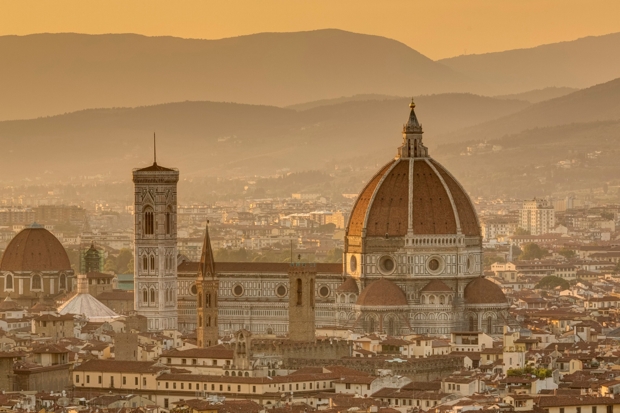‘Amid the cobbled passageways and tumbling tenements of the Italian city of Perugia, it’s possible to daydream you are in the middle ages. You are surrounded by medieval art and architecture. And then you think: hold on, what happened to the Renaissance?’ So begins Paul Mason’s article for the Guardian on Monday about the Panama Papers, in which he makes the case that because Perugia’s wealthy citizens did not pay their taxes, the city fell into decline. ‘We want to be the Florence, Bruges or Amsterdam of the coming century, not the Perugia,’ he adds.
Renaissance Florence may be intoxicating and I don’t doubt that its citizens were possibly better at paying their taxes than Perugia’s. But does Paul Mason – a man known for his blasts against global capitalism and contemporary banking culture – really want us to imitate Florence? A city built on – and famed for – its intricate banking systems. As the novelist Tim Parks says in Medici Money, ‘During the 13th and 14th centuries, a web of credit was spun out across Europe, northward to London, east as far as Constantinople, west to Barcelona, south to Naples and Cyprus. At the heart of the dark web of usura lay Florence.’
It was thanks to this that vast amounts of art and architecture was able to be commissioned. The city had more than its fair share of oligarchs, whose private patronage allowed the sciences and humanities to flourish. And yes, there were moments in the city’s history which sided with the workers, most notably the Ciompi revolt in the 14th century, during which unrepresented labourers rose up against the class system. But this only led to a more autocratic government afterwards.
The main benefactors of the revolt ended up being the Medicis, a banking family who emerged to become the most wealthy and powerful citizens in Florence. For many years they ruled effectively as princes, despite the city being, in name, a republic. Beyond Italy, the strategic marriage alliances they formed led them to claim extraordinary power in Europe. I imagine their finances would have put many people in the Panama Papers to shame.
Perugia may have handled taxation badly during the Renaissance, but Florence was hardly a left-wing paradise. ‘The great lesson of the Italian city states in the high Renaissance was that if you will it, it can happen. You can will an economy where science, innovation, art and banking coincide: talented people get rich, inherited wealth soon evaporates; rulers listen to demands for social justice – and if they don’t, they burn,’ says Paul. A rose-tinted view of the Renaissance, if ever there was one. It wasn’t ‘will’ that built Florence; it was private wealth.







Comments